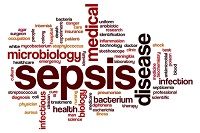Sepsis Readmissions Bigger Problem than Thought
Hospitals have been paying Medicare penalties when patients are readmitted too soon after discharge. So far the focus has been on patients with heart failure and pneumonia but a study from NYU finds sepsis readmissions are also common.

Severe sepsis is a common but under-publicized cause of rehospitalization, according to study results published by researchers from New York University School of Medicine.
In an abstract presented at the 2015 American Thoracic Society annual meeting in Denver, CO, Darya Rudym, MD, and colleagues looked at the rate of readmission within 30 days of discharge at Bellevue Hospital Center in New York City. Rudym and colleagues compared this rate to the readmission rates for patients with acute myocardial infarction (MI), heart failure (HF), and pneumonia.
Those conditions have already received much scrutiny as hospitals and physicians try to avoid Medicare penalties for readmitting these patients too soon after their original discharge.
The team looked at 22,712 Bellevue discharges over a 3-year period. During that time 3,477 patients (15.31%) were readmitted. Using 3 ICD-9-CM codes for sepsis, they found that grouped under each of those codes 14.7%, 14.91%, and 12.26% of these patients were readmitted within 30 days. That was higher than the 8.75% readmission rate for MI, and comparable to the 15% readmission rate for HF and the 14.46% rate for pneumonia, Rudym wrote.
“Severe sepsis continues to be a common and an expensive cause of hospitalizations,” the team said, adding that sepsis is also “just as significant of a cause of rehospitalization as nationally recognized outcome measures such as HF and pneumonia readmissions.”
The report did not address the question of whether patients at this safety net hospital might face living situations that made it harder for them to regain their health after sepsis discharge.